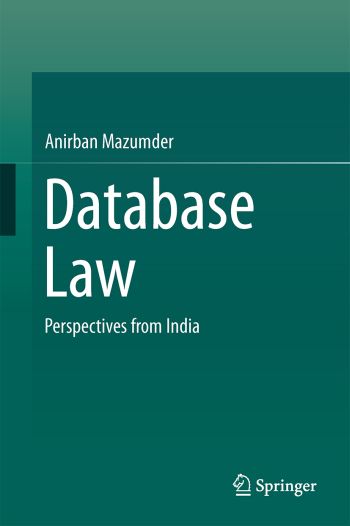
This book focuses on database law (a branch of intellectual property law) and further explores the legal protection currently available for data and data-related products in India. It offers a comparative study of the position of copyright law in protecting databases in the US and EU, while also presenting responses from the Indian database industry and its aspirations regarding the role of copyright law in database protection. India is undoubtedly leading the way as a knowledge economy. Its strengths are its information technology capability and its knowledge society, as well as its booming database industry - aspects that also necessitate the study of the role of law, as well as the protection of data and databases, in India. This book examines the growing importance of copyright law for protecting databases as well as for ensuring access in information societies. The book concludes with a discussion of key principles to be kept in mind in the context of drafting legal regimes for databases in India that will both benefit the database industry and ensure accessibility.